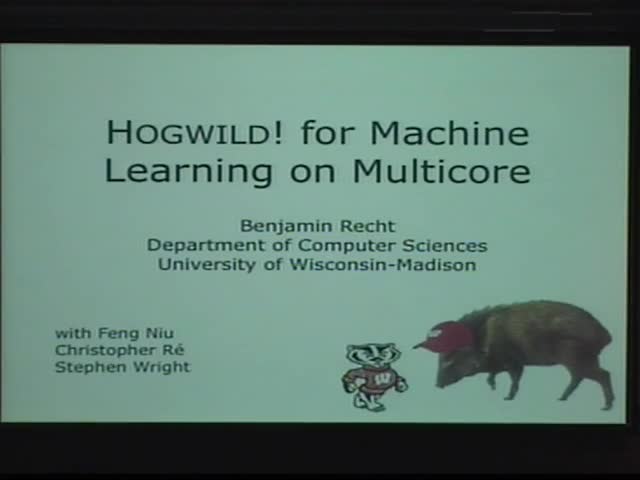Hogwild for Machine Learning on Multicore
Presenter
March 28, 2012
Keywords:
- Optimal stochastic control
MSC:
- 93E20
Abstract
Stochastic Gradient Descent (SGD) is a popular optimization algorithm for solving data-driven machine learning problems such as classification, model selection, sequence labeling, and recommendation. SGD is well suited to processing large amounts of data due to its robustness against noise, rapid convergence rates, and predictable memory footprint. Nevertheless, SGD seems to be impeded by many classical barriers to scalability: (1) SGD appears to be inherently sequential, (2) SGD assumes uniform sampling from the underlying data set resulting in poor locality, and (3) current approaches to parallelize SGD require performance-destroying, fine-grained communication.
This talk aims to refute the conventional wisdom that SGD inherently suffers from these impediments. Specifically, I will show that SGD can be implemented in parallel with minimal communication, with no locking or synchronization, and with strong spatial locality. I will provide both theoretical and experimental evidence demonstrating the achievement of linear speedups on multicore workstations on several benchmark optimization problems. Finally, I will close with a discussion of a challenging problem raised by our implementations relating arithmetic and geometric means of positive definite matrices.
Joint work with Feng Niu, Christopher Re, and Stephen Wright.
